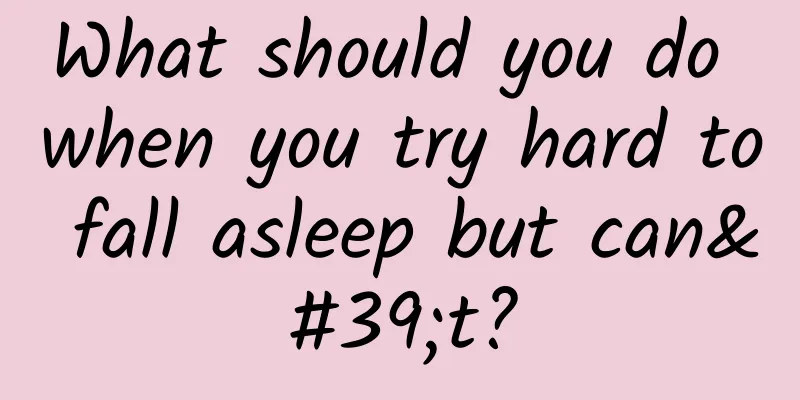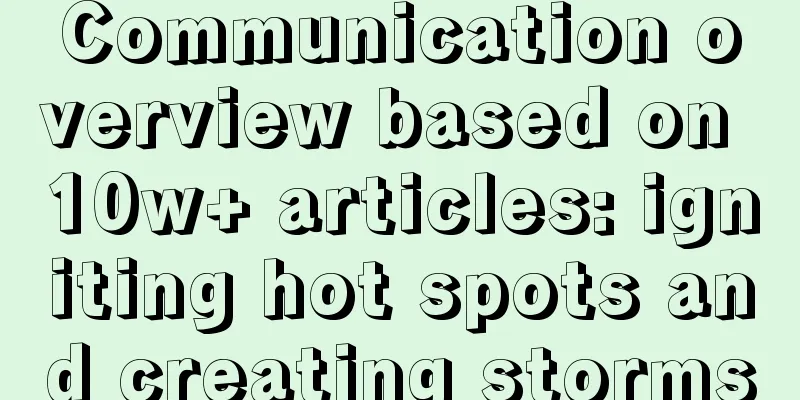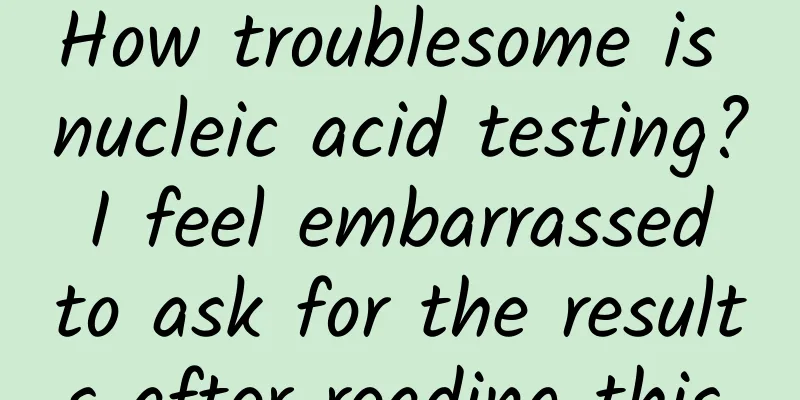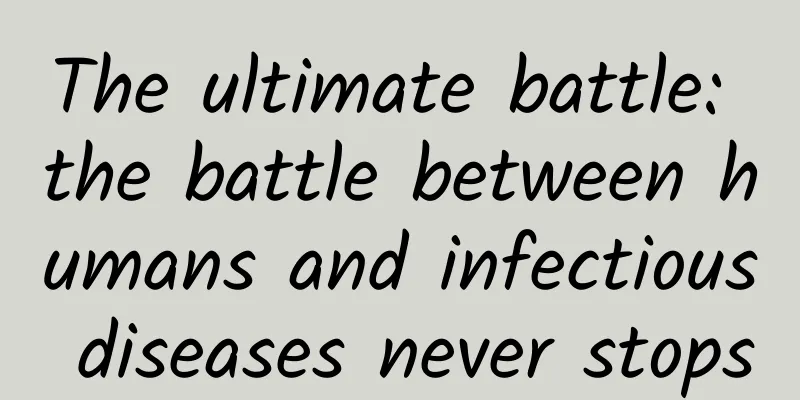What should you do when you try hard to fall asleep but can't?

|
The lives of modern people are becoming increasingly hard, and sleeping is even seen as the only chance to catch a breath. Sometimes after a tiring day at work, I finally get home at night and intend to go to bed and have a good sleep, but I toss and turn in bed and can’t fall asleep. When I can’t fall asleep, I want to pick up my phone to check it, which makes me even more unable to fall asleep. In addition to clear illnesses or physical and mental disorders that affect sleep, in fact, for most ordinary people, the biggest enemy of insomnia is stress. Today we want to talk about how stress affects sleep, maintains insomnia, and how we can solve it? 01 How does stress affect sleep? Stress is an inevitable part of our lives. Some stress is acute, such as having to prepare for a big test or interview soon. Some are chronic. For example, employees working in the Internet industry, although they do not have to face huge stressors like medical workers or police officers, are under chronic work pressure day after day. In addition, as the boundary between work and life becomes increasingly unclear, smartphones and electronic devices are on standby 24 hours a day, and many trivial things in work, study, and life begin to invade our sleep at night. When a person begins trying to fall asleep, these stressful thoughts continue to persist, causing a disruption in sleep patterns and triggering insomnia. Studies have shown that high levels of stress can seriously impair sleep, leading to longer sleep time and more fragmented sleep. Insufficient sleep also triggers our stress response system, secreting stress hormones (cortisol) in the body, and elevated cortisol in the body further disrupts sleep. Sleep plays a very important role in both learning and memory, and chronic sleep deprivation is also associated with decreased metabolism and endocrine dysfunction. So when insomnia begins, it often affects subsequent sleep by causing poor daytime performance and worse physical condition. Image source: pexels 02 What is the “Insomnia Trait”? Although everyone has stress in life, not everyone in the world suffers from insomnia. So what factors mediate the relationship between stress and sleep? Professor Kenneth Lichstein of the University of Alabama conducted an experiment and found that people who worry too much about their sleep will have more emotional and physical problems, and then have worse sleep quality, compared to those who don't worry about whether they can sleep. Professor Lichstein defines an "insomnia identity", which describes a "persistent belief that one does not sleep well". Professor Lichstein said that by measuring people's perceptions of their sleep and their actual sleep, they found that insomnia traits can effectively predict daytime functional impairment rather than sleep quality itself. That is to say, regardless of whether they actually sleep well or not, people who always think they don’t sleep well will have impaired normal social functions during the day, including inability to concentrate and feeling tired. The study also showed that about one-third of people who complained about insomnia actually had good sleep quality. Professor Lichstein believes that insomnia traits usually come from the anxiety that they can't have a "perfect sleep", such as worrying about taking too long to fall asleep or waking up briefly at night. Although these minor problems do not actually cause real sleep deprivation, they still make people anxious. Those who had poor sleep but were relaxed and not overly concerned about it had a low risk of impaired daily functioning. For people with insomnia traits, the anxiety caused by worrying about their sleep acts like fuel to continuously provide energy for stress, keeping the stress going. Image source: pexels 03 There is one thing that the harder you try, the worse you do Most things in this world can be done better with hard work, but there is one thing that the harder you try, the worse it becomes, and that is falling asleep. Sleeping is the least effortful thing to do. As mentioned earlier, the stress caused by worry is the fuel that keeps insomnia going, so to relieve insomnia, all you need to do is remove this fuel. Although insomnia is a problem that should be taken seriously, "ignoring" it appropriately to some extent and reducing the psychological burden may lead to a better sleep experience. Image source: pexels So, relax and let yourself follow your body's natural feelings. If you can't help but have to do something "hard", you might as well try the following suggestions: Taking a warm bath or doing some light yoga before bed can help us relax after a long day; Create a comfortable sleeping environment and maintain appropriate temperature and humidity; try to avoid exposure to blue light from electronic devices; At the same time, we should also stay away from caffeine, tobacco, alcohol and other stimulating substances. For patients with insomnia disorders, meditation and cognitive behavioral therapy for insomnia (CBT-I) are recommended for treatment. |
<<: If you encounter them, don't pick them randomly, it will be very "punishing" (Part 1)
Recommend
Real-name registration is required for riding in Shenyang! When will it be implemented? How to do it specifically?
Recently, it was learned from the Shenyang Munici...
Li Muzi pelvic floor muscle visceral fascia 10 sections
Li Muzi's 10-session pelvic floor muscle and v...
A comprehensive summary of Android adaptation problems
Support multiple screens Android runs on a variet...
Official account: The Course on the Monetary Emotion Cycle of Speculative Capital
Course Description This course focuses on explain...
A short video project that is as profitable as Douyin novel distribution
Douyin, this magical short video platform, has a ...
Customized video of a foreigner shouting "Happy Birthday"! Creatively customized video of a black African child holding a sign to wish a happy birthday!
Our African team is professional in shooting bles...
What are the differences between 400 telephones and ordinary telephones?
Before the emergence of 400 telephone numbers , t...
E-commerce market trends and product selection in June!
Which categories are hot-selling in various chann...
New trends in overseas promotion and operation of social media in 2019!
I have previously discussed the correct approach ...
GeForce Experience adds four new features, driver upgrade "significant" changes
NVIDIA's GeForce Experience (GFE) is a very g...
I've learned a lot. It turns out that Android screen adaptation can be played like this
Why screen adaptation? Fragmentation Brand model ...
iOS StoreKit 2 New Features Analysis
1. Background At WWDC 2021, a new StoreKit 2 libr...
The magical "Sarebo" and the noble "Jiusi Zheer"
In the middle of Lushan Scenic Area in Xichang, t...
Tesla's real rival is here: Audi will launch a pure electric sports car
Although there are companies like Tesla that have...
Fishing, hunting birds, and being inclusive, the life of ancient people 70,000 years ago was far better than that of the "crazy primitive man"
In the Paleolithic Age, ancient ancestors fished ...









